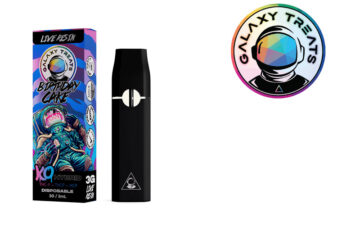All The New Stuff!
Unpacking the Controversy Surrounding Psilocybin and Magic Mushrooms in 2024
People often approach me at various social events after reading my articles on Psilocybin and magic mushrooms. (I'm fairly well-known in my community, much to [...]
Drop Your Disposable Vape in Water? 3 Tips to Fix It
I recently re-watched Superman III and was struck by how easily the supercomputer was disabled by a simple can of acid. It got me thinking [...]
How Does the Raz DC25000 Stack Up? A Comprehensive Review of One of the Best Disposable Vapes on the Market
As a modern vaper seeking exceptional performance and longevity, the RAZ Vape 25K DC25000 disposable vape delivers on multiple levels. With its rechargeable 800mAh battery, [...]
BLVK Bar 20K: A Powerful New Disposable Vape for 2024 – A Spinfuel Review
As avid vapers always on the lookout for the latest and greatest devices, I was eager to get my hands on a few of the [...]
How Nicotine-Free Vapes Changes Your Life in 5 Distinct Ways
I used to smoke heavily like hell and I can assure you that nicotine plays a major role and has become my obsession. Even after [...]
The Magic Mushroom Trip – Unlocking Your Mind With Psilocybin in 2024
How did I get here again? Oh right, the mushrooms. Magic Mushrooms. Psilocybin. The Mind Expander… Let me tell you about my first magic mushroom [...]
Navigating the Chaos: CBD’s Role in Cultivating Inner Peace in 2024
Can CBD make a difference in your life during these, what feel like, the endgames? I asked the publisher of this excellent online magazine to [...]
Beyond Therapy: The Spiritual and Existential Impact of Magic Mushrooms
As an adventurous psychonaut seeking deeper meaning, you have likely experimented with magic mushrooms. While these psychedelic fungi can provide recreational effects, their profound spiritual [...]
A Guide to Microdosing Magic Mushrooms for Mental Wellness
What Is Microdosing Magic Mushrooms? Microdosing refers to taking sub-perceptual doses of psychedelic substances, such as magic mushrooms or LSD, to improve creativity, mood, and cognition. [...]
Cannabis
All Things CBD
Kratom
Delta THC Reviews and Resources
 Spinfuel, since 2011, is widely recognized as one of the largest and most successful online magazines in the realm of CBD, Cannabis, Delta-THC, and vaping e-liquids with vape devices. This recognition is not without merit, as Spinfuel has carved out a unique space in the digital landscape, distinguishing itself through a commitment to providing the best and most accurate information to its readers. The reasons for its success as an online destination are multifaceted.
Spinfuel, since 2011, is widely recognized as one of the largest and most successful online magazines in the realm of CBD, Cannabis, Delta-THC, and vaping e-liquids with vape devices. This recognition is not without merit, as Spinfuel has carved out a unique space in the digital landscape, distinguishing itself through a commitment to providing the best and most accurate information to its readers. The reasons for its success as an online destination are multifaceted.
The Spinfuel Audience
Firstly, Spinfuel caters to a specific yet growing audience interested in CBD, Cannabis, Delta-THC, and of course, all types of vaping products. This niche focus allows them to provide specialized content that is highly relevant to their audience. In an online world where general information is abundant, Spinfuel’s targeted approach ensures that readers receive information that is not only relevant but also deeply insightful about the specific subjects they care about.
Secondly, the magazine’s commitment to truth and accuracy plays a significant role in its success. In an industry often clouded by misinformation and ambiguous regulations, Spinfuel stands out by offering reliable, thoroughly researched information. This dedication to truth is particularly crucial given the health implications and legal nuances associated with CBD, cannabis, and vaping products. Readers trust Spinfuel as a source that not only educates them but also prioritizes their safety and well-being.
Spinfuel Stays Current
Finally, Spinfuel understands the importance of staying current in a rapidly changing industry. The magazine continuously updates its content to reflect the latest scientific findings, product innovations, and legislative changes. This commitment to staying up-to-date ensures that readers always have access to the most current information, making Spinfuel an indispensable resource for anyone interested in Disposable Vapes, CBD, Cannabis, Delta-THC, Kratom, and even Magic Mushrooms.
In conclusion, Spinfuel’s success as the go-to online destination for information is a result of its specialized focus, commitment to truth, quality content, and up-to-date information. These elements combined create a trusted and comprehensive resource for readers navigating these complex and evolving industries. 2011-2023+








































